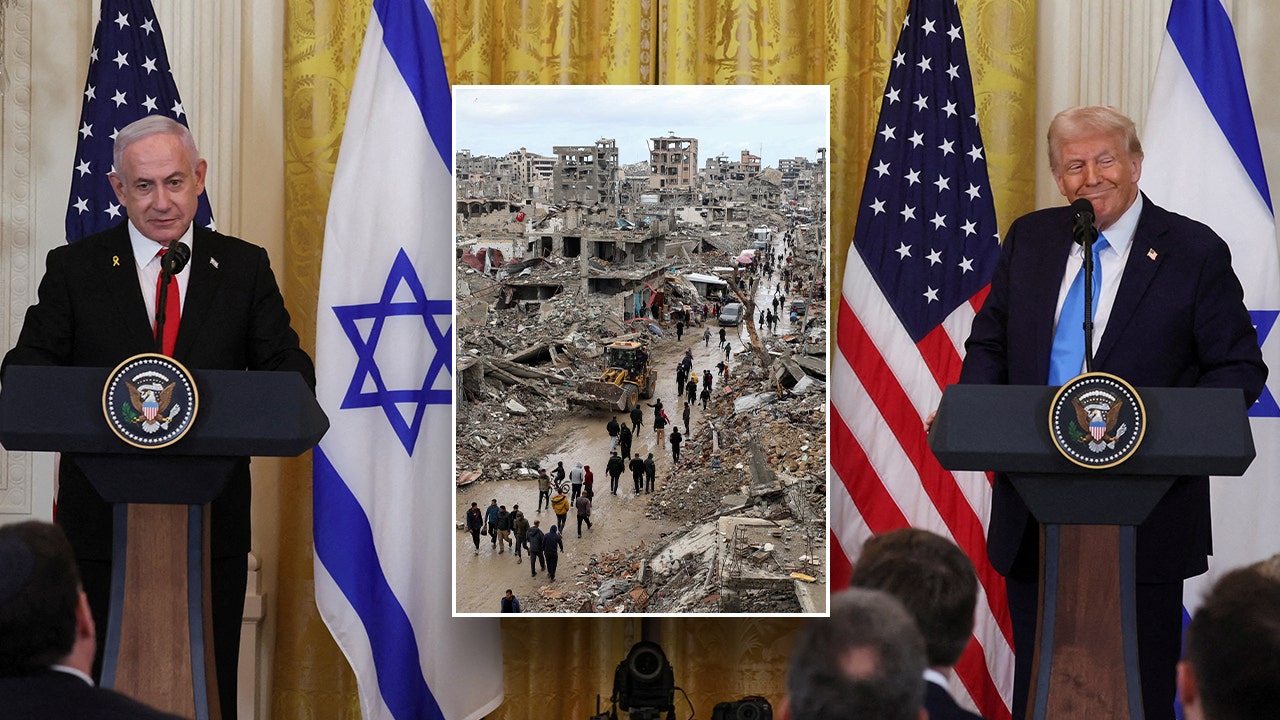Politics
Egypt planning ’emergency’ Arab summit on Palestinian territory as Trump insists US ‘own’ Gaza

Egypt Announces Summit on Gaza’s Future Amid Trump’s Controversial Remarks
Egypt announced on Sunday that it will host a summit of Arab leaders on February 27 to discuss the future of the Gaza Strip. The move comes in response to President Donald Trump’s controversial statement suggesting that the U.S. should "own" Gaza, a declaration that has stirred anger and concern among key U.S. allies in the Middle East, including Egypt, Saudi Arabia, and Jordan. Egypt’s foreign ministry revealed that the summit would focus on the "state of Palestine" and address the "new and dangerous developments" affecting the Palestinian cause. The meeting is seen as a direct reaction to Trump’s remarks, which have been criticized as an overreach in international affairs.
Trump’s Gaza "Takeover" Sparks Outrage and Confusion
President Trump’s statement, made after meeting with Israeli Prime Minister Benjamin Netanyahu and reiterated over the weekend, has been met with widespread criticism. Trump’s suggestion that the U.S. should "buy and own" Gaza has been dismissed as both impractical and offensive. The President went further, stating that Gaza could be rebuilt by other Middle Eastern states under U.S. auspices. "There’s nothing to move back into. The place is a demolition site," Trump remarked, adding that "the remainder will be demolished." He also claimed that Palestinians do not want to return to Gaza, suggesting they only do so because they have no other option. These comments have been labeled as callous and deeply misleading, given the historical and cultural significance of Gaza to the Palestinian people.
Arab Leaders Reject Trump’s Proposal, Emphasize Palestinian Sovereignty
Arab leaders and neighboring countries have categorically rejected Trump’s proposition, calling it unacceptable and counterproductive. Gaza’s Arab neighbors, including Egypt, Saudi Arabia, and Jordan, have dismissed the idea of taking in the 1.8 million Palestinians living in the Strip, emphasizing that Gaza is an integral part of Palestinian territory. Hamas, the Palestinian group controlling Gaza, called Trump’s comments "absurd" and "a recipe for failure," asserting that Gaza is not a commodity that can be bought or sold. "Our Palestinian people will thwart all displacement and deportation plans," said Izzat al-Risheq, a member of Hamas’s political bureau. "Gaza belongs to its people."
Ceasefire and Reconstruction Efforts Hang in the Balance
The ceasefire between Israel and Hamas, brokered in part by Trump’s team in January, has introduced a fragile calm to the region. However, the agreement’s long-term prospects are uncertain, with reconstruction efforts expected to take decades rather than years. Trump officials now estimate that rebuilding Gaza could take 10 to 15 years, given the extensive destruction caused by Israel’s recent offensive. Meanwhile, Israel began withdrawing from the Netzarim corridor in Gaza on Sunday, allowing Palestinians to return to their homes. Despite this tentative progress, negotiations over the mid- and long-term future of Gaza remain contentious. Hamas insists on the full withdrawal of Israeli troops, while Israel demands the elimination of Hamas as a political and military force.
Regional Diplomacy and U.S. Policy in Focus
As tensions rise, regional leaders are preparing for high-stakes diplomacy. Jordan’s King Abdullah II is set to meet with Trump at the White House on Tuesday, while Egyptian President Abdul Fattah al-Sisi and Saudi Crown Prince Mohammed bin Salman are also expected to engage with the President in the coming days. These discussions will likely center on finding a sustainable solution to the Gaza crisis, as well as addressing broader regional security concerns. White House national security adviser Mike Waltz suggested that Trump’s provocative comments are designed to pressure the Middle East to take ownership of the issue. "He’s not seeing any realistic solutions," Waltz said, adding that the region must come up with its own answers to the challenges posed by Gaza’s devastation.
A Controversial Policy with Far-Reaching Implications
Trump’s remarks on Gaza have not only strained relations with key allies but also raised eyebrows among conservatives and foreign policy experts. While some allies speculate that Trump’s comments are a negotiating tactic, the President’s unwavering commitment to "owning" Gaza has-ranking officials and analysts alike. The implications of such a policy are profound, with critics warning that it could further destabilize the region and undermine U.S. credibility as an honest broker in Middle East peace talks. As the Arab summit approaches, all eyes will be on Cairo, where regional leaders will attempt to chart a way forward for Gaza—one that respects Palestinian sovereignty and addresses the humanitarian and political dimensions of the crisis. For now, the future of Gaza remains uncertain, caught in the crossfire of geopolitical rivalries and competing visions for the region.











